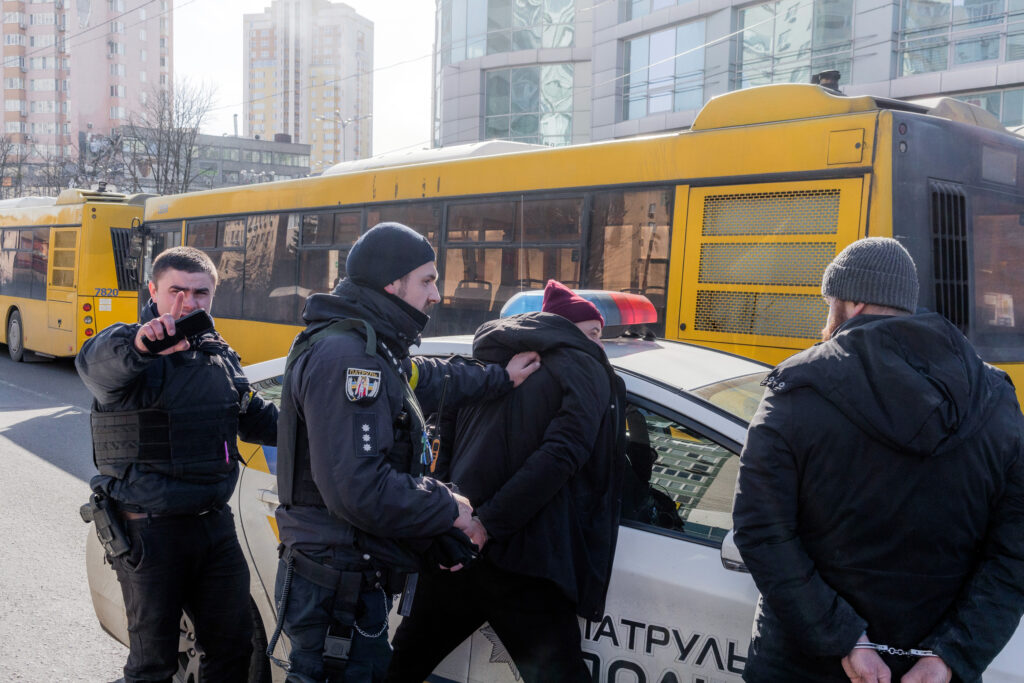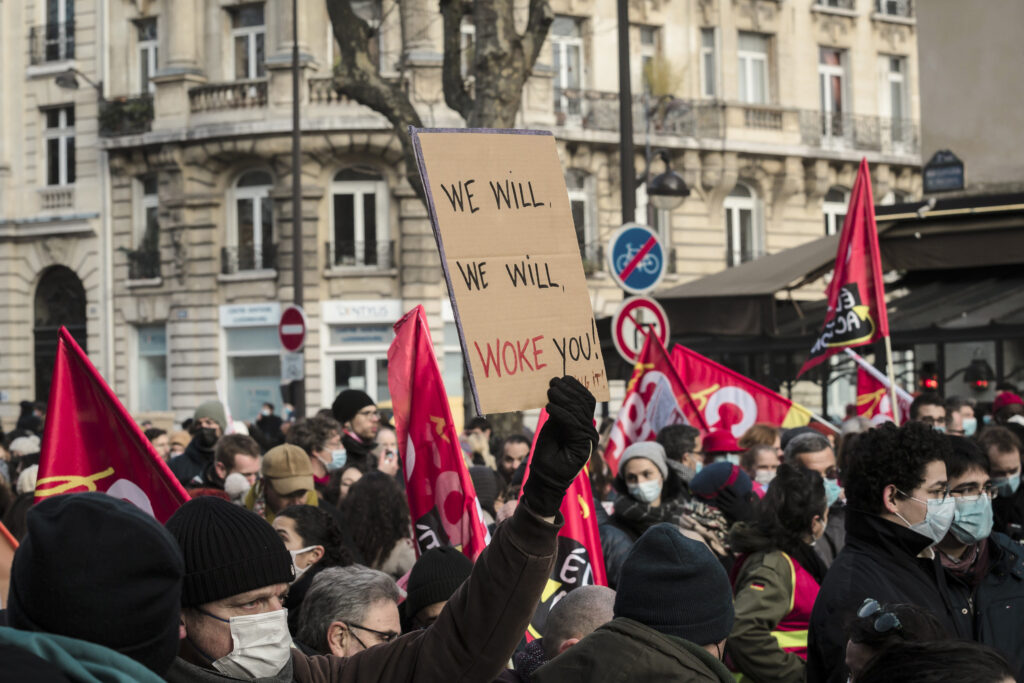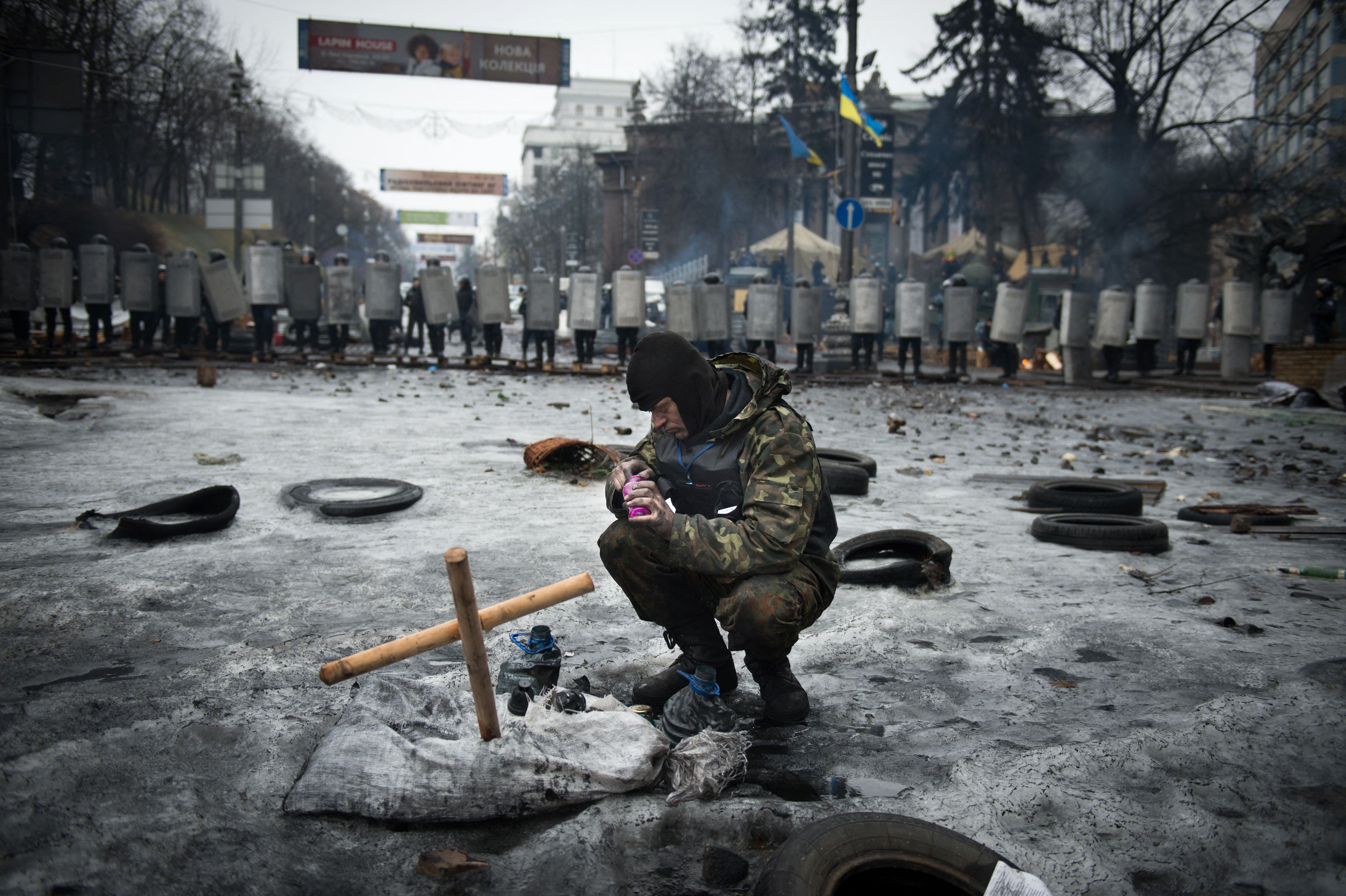Feliz Año Nuevo. There is a lot to tackle in this issue so let’s jump straight into it. We lead with two very sharp essays that will ruffle some feathers and raise a few eyebrows. Productive dissent, considered critique—this is our daily bread. We hope you engage with these texts in that frame of mind.
First off is a piece by former BBC journalist and long-time Ukraine observer Leonid Ragozin that spotlights the lesser-appreciated story of the country’s democratic regression. Ragozin draws uncomfortable conclusions that merit attention and debate. We follow with the fine sociologist and author Gary Younge and his tough-minded critique of a celebrated new book from his fellow sociologist Musa al-Gharbi. Younge worries that al-Gharbi is drawing sociological conclusions without accounting for society and allows his master concepts—wokeism, in the first instance—to go undefined.
For our curated selection we lead with Wolfgang Streeck’s trenchant piece on the troubling politics of German anti antisemitism. Few people had on their bingo card that Deutschland would be the geography where combating antisemitism (and shielding Israel) would morph into a professional religion. A conversation between Adam Tooze and Ding Xiongfei, originally published in the Shanghai Review of Books, follows. Per usual with Tooze, the sky’s the limit, but here especially is a dissection of his political economy, his polemics with Perry Anderson, and the climate condition as refracted through a Toozian (and Chinese) lens.
If you have a spare two-and-a-half hours, a recent conversation in The Dig between Wendy Brown and Quinn Slobodian merits a close listen. The venerated political theorist and critic of neoliberalism and the historian of neoliberalism have a go at those themes and more. Taped after Donald Trump’s triumph last November, it is a tour d’horizon of the state of politics in these United States.
Some more neoliberalism concludes our issue, this time from Africa. A new volume on neoliberalism from below features stories from different parts of the continent. We spotlight an essay therein from a close friend of The Ideas Letter, the Ugandan writer Kalundi Serumaga. Serumaga takes a scalpel to the use and abuse of the concepts of “workers” and “the working class” and their contemporary conceptual and empirical relevance to the continent.
Our musical selection for Issue 31 is from a singer and pianist who may have passed you by: Shirley Horn. What a voice, what control; she was so good that no less than Miles Davis guested on a record of hers (by my count, he did that only one other time, post 1958). Here she is performing the great American songbook chestnut “Love for Sale” by Cole Porter. Listen as Horn stretches the lyric almost to infinity.
—Leonard Benardo, senior vice president at the Open Society Foundations
Darkness on the Edge of Ukraine

Leonid Ragozin
The Ideas Letter
Essay
Ragozin challenges Manichean accounts that paint wartime Ukraine as a bulwark of freedom against Russian evil. He argues that both sides exhibit forms of repression, propaganda, and opportunism, perhaps different kinds but all leading to devastating human consequences. Ukraine’s maximalist goals and the West’s support have exacerbated the crisis, leaving Ukraine and its people as the primary victims.
“Observing post-Maidan Ukraine without rose-tinted glasses, with basic intellectual decency, I ask myself: What exactly is the West pursuing there? If the answer is democracy, human rights and Ukraine’s general well-being, then the outcome so far seems to be the opposite of the goals set. … The war between Ukraine and Russia is not a battle between the forces of light and the forces of darkness. This war is about the darkness that is setting on both sides of the frontline: the shift to the global far right and state capture by securocrats.”
Whither Woke?

Gary Younge
The Ideas Letter
Essay
In We Have Never Been Woke: The Cultural Contradictions of a New Elite, Musa al-Gharbi focuses on “symbolic capitalists”—a broadly defined new elite that uses the rhetoric of social justice to gain power while failing to live up to its ideals. In Younge’s opinion, the argument falters from a lack of clarity and context: al-Gharbi’s refusal to define “wokeness,” a deeply contested term, fundamentally undermines his analysis.
“Ultimately al-Gharbi presents an argument with too many babies and not enough bathwater—dismissing large sections of society and the opinions they hold both summarily and comprehensively, while failing to hold other centers of power and influence meaningfully to account.”
A Matter of State
The politics of German anti-anti-Semitism
Wolfgang Streeck
European Journal of Social Theory
Journal Article
German realpolitik diplomacy following World War II explains the country’s alliance with Israel and continues to underly official efforts to promote goodwill among Germans toward Israel—even as in recent years this approach has evolved to conflate criticisms of Israel with antisemitism, according to Streeck.
“Safeguarding Germany’s intensifying pro-Israelism politically required increased efforts to sell it to the German public. Against the background of the radicalization of the Israeli anti-two-state solution policy especially in the occupied territories, this must have appeared far from easy. Simply combating looming anti-Israelism with public pro-Israelism was obviously deemed not to be enough. The fight against a rise of anti-Israelism that might prevent Germany from doing for Israel what Israel and the United States considered Germany’s historical duty required identification in the public consciousness of anti-Israelism with anti-Semitism, the genocidal pathology that had turned Germany into the Holocaust state. Preparations for identifying abhorrence of Israeli neo-colonialism in the occupied areas of Palestine with a murderous desire to kill Jews, a desire to be suppressed for the sake of humanity by all means, began early and proceeded slowly. Even at the beginning of the Gaza war, there were still official and quasi-official assurances to be heard that Israelkritik, if properly expressed, was not necessarily anti-Semitic. Hardly a year later, anti-Israelism and anti-Semitism have successfully been merged into Judenhass (hatred of Jews).”
On Thinking in Medias Res
An Interview with Ding Xiongfei from the Shanghai Review of Books
Adam Tooze
Chartbook
Blog Post
Tooze reflects on the concept of polycrisis as a defining characteristic of the contemporary era, emphasizing its rejection of linear historical narratives or predictable resolutions. He critiques approaches that oversimplify geopolitical tensions, particularly regarding Russia’s invasion of Ukraine, and highlights the global climate crisis as a possible organizing framework for addressing systemic challenges in a fragmented world.
“Climate change is arguably the first issue in which China dethrones the West as the decisive historical force. In the West, in the 1980s and 1990 progressives framed climate change as the ultimate test of collective rationality. This is what I was referring to earlier in describing the climate crisis, ironically, as the last remaining hope of totalization. Now we must come to terms with the fact that if this story ends well, the West will not be the hero—China, under the rule of the CCP, will be the leader. That poses a novel and radical problem for the West in the philosophy of history. Why? Because the climate crisis is itself a novel and radical problem. … climate change, aiming for net-zero emissions by 2050 or 2060, requires a level of political agency we’ve never seen before. And the leading agent of this transition has to be the Chinese regime. That’s a world-historic twist the West was not ready for, especially in climate, the chosen domain of progressive struggle for many years.”
MAGA 2.0
With Quinn Slobodian and Wendy Brown
Daniel Denvir
The Dig
Podcast
Quinn Slobodian and Wendy Brown discuss Trump’s return to power and the “ever-emergent trajectory of Trumpism and the MAGA far-right” in the immediate aftermath of last November’s US presidential election, with host Daniel Denvir.
Wendy Brown says: “I do think that cohesive ideology is probably not our best friend analytically here. And I think the left probably should give it up. Because we’re always looking for it and it always means we miss really important features of a multi-pronged project for remaking the state. And that’s how I would understand both the economic and the social project of Project 2025 and Trumpism more generally. I do think economically all of these tributaries are projects of remaking the state for capital …”
African biographies of capitalism—the case for an oral history of neoliberalism
Jörg Wiegratz, Joseph Mujere, and Joost Fontein
Roape
Essay
A series in Roape reviews Working People Speak–Oral Histories of Neoliberal Africa, a book that re-engages with oral histories to explore the personal experiences of work and economic life under neoliberal capitalism across the African continent. Kalundi Serumaga’s essay examines the concepts of “workers” and “working class,” questioning their applicability beyond the context of Western industrial societies. He considers how oral history could serve as a valuable approach to understanding the experiences of the exploited and oppressed within their own contexts and through their own voices.
“With these essays and many before them we now even have the situation where the concept of Working Class may now be found in a perhaps repurposed, or perhaps disembodied form, in areas of writing outside the Marxist tradition. But this may raise the question of what intention lies within the study of the “working class” in the absence of the historical role attributed to it by the ones who invented and weaponised the socioeconomic concept of them?”
